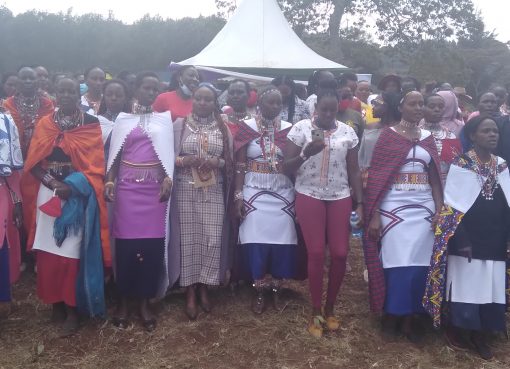As Kenyans countrywide try to adjust to the dusk to dawn curfew imposed by the government to limit the spread of the deadly coronavirus, for residents of North Eastern Kenya, the curfew is nothing new to them.
The scenes witnessed on the first day was a clear indication that many Kenyans did not realise the seriousness of the curfew and that is why they found themselves on the wrong side with police.
In 2015, following the Garissa University attack that left 148 people dead most of them students, the then late interior Cabinet Secretary Joseph Nkaissery announced a dusk to dawn curfew for three months in the three counties of Mandera, Garissa and Wajir as well as Tana River County.
Just as the Law Society of Kenya (LSK) will be moving to court tomorrow to challenge the current curfew, the civil society then attempted the same but failed.
In November 2014 the attack on a Nairobi bound bus from Mandera where 28 teachers were killed also resulted in a dawn to dusk restrictions in Mandera County. The government also imposed curfew to people living in and around the vast Boni forest after it was established that the dense forest the was militants’ hideout.
For the last two days after the curfew came into force, police in the region had ‘an easy’ time implementing the curfew because the streets of Garissa town were virtually empty even on the first day. The same was replicated in Mandera and Wajir.
“This is something we are used to. We have been there before and we were aware of the consequences and that is why we were all at home by 7 pm,” said Ali Hussein, a Garissa town based businessman.
“We started closing shops and other business premises as early as 5 pm. We had hard time with then police but we had to choose between obeying the law or being brutalised,” he added.
Meanwhile, the police continue to receive condemnation from Kenyans for the manner in which they are implementing the curfew.
Mukhtar Osman, chairman Garissa Human Rights Network said that the training of police officers in Kenya is wanting and ‘one wonders what some of these rogue officers aim to gain by brutalising fellow citizens’.
“We really empathise with Kenyans who were brutalised by the police especially on the first day. I urge my fellow countrymen to keep off the streets because the police are not ready to listen to you even if you have genuine reasons why you are late ,” Mukhtar said.
“What we saw at the Likoni ferry crossing in Mombasa and other parts of the country is inhuman and unacceptable to say the least,” he added.
He said if police were held individually liable for their crimes against civilians they would have behaved.
Northern Forum for Democracy Coordinator Khalif Abdi said police should be humane when enforcing the law, this he said has a great impact on public confidence.
He said Independent Oversight Policing Authority (IPOA) should conclusively investigate what happened in Mombasa during the commencement of curfew on Friday.
“Officers involved in brutalising the residents should be held personally responsible,” he said.
LSK will tomorrow move to court to challenge the government-sanctioned curfew which they say will only aid in spreading the coronavirus.
LSK President Nelson Havi, in a public statement, termed the 7pm to 5am curfew as unconstitutional, further accusing police officers of abusing their authority in effecting it.
Havi also urged Kenyan citizens to document all incidents of police brutality and forward them to LSK for purposes of prosecuting the responsible police officers.
“Law Society of Kenya will move to Court on Monday to challenge the curfew which is not only unconstitutional but has been abused by the police. It is evident that Covid-19 will be spread more by actions of police than of those claimed to have contravened the curfew,” said Havi.
By Jacob Songok



